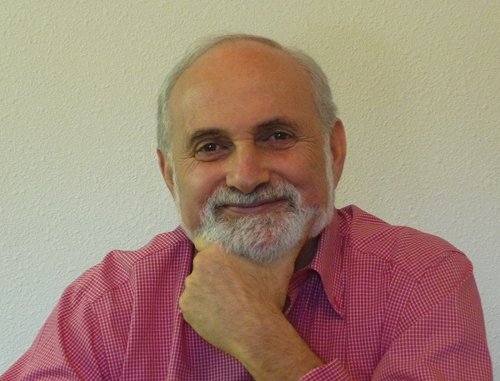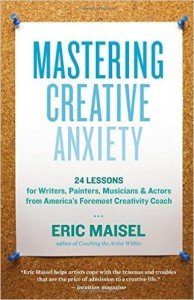
If you’ve ever benefited from creativity coaching, then you likely have Dr. Eric Maisel to thank. He is a leading expert in helping creative and performing artists overcome creative blocks and performance anxiety, deal effectively with the art marketplace, and handle criticism and rejection. He trains creativity coaches nationally and internationally and provides core trainings for the Creativity Coaching Association.
I first became aware of Eric’s work while serving as managing editor of Writer’s Digest magazine, where we ran excerpts from some of his books on creativity. He has published more than 40 books over his career, and two of them were with Writer’s Digest: A Writer’s Paris and What Would Your Character Do?
Eric and I caught up recently via email to talk about some of his latest projects, as well as creativity insights for writers (of course!).
Jane Friedman: When we first met, you had already published a really significant number of books, and as far as I can tell, you haven’t slowed down! Can you offer some insight into your process for doing this on such a consistent and high-quality basis?
Eric Maisel: Indeed, I haven’t slowed down. And if I could find publishers for all of the books I would like to write, I would write even more books!
I have no problem dreaming up ideas for books because so much of what is considered “contemporary wisdom” strikes me as completely wrong, especially with respect to the diagnosing and treating of mental disorders, my current focus. My next book comes out in December, The Future of Mental Health: Deconstructing the Mental Disorder Paradigm. Not only did I have to turn my ideas on this subject into a good book, but I had to find the publisher for it. All the agents I contacted, including the three agents who sometimes represent me, were not interested. So, I see as my job both writing good books and finding publishers for them—it’s all on me <smile>.
One of your recent books, Why Smart People Hurt, discusses why smart and creative people (like novelists) tend to be overcome with anxiety and hypersensitivity. Do you have a preferred tip you share with writers when dealing with such challenges?
 On the one hand, there is no single tip but rather many anxiety management strategies that a person could try—I describe twenty of them in detail in Mastering Creative Anxiety. These include breathing techniques, cognitive techniques, relaxation techniques, discharge techniques, reorienting techniques, dis-identification techniques, and so on.
On the one hand, there is no single tip but rather many anxiety management strategies that a person could try—I describe twenty of them in detail in Mastering Creative Anxiety. These include breathing techniques, cognitive techniques, relaxation techniques, discharge techniques, reorienting techniques, dis-identification techniques, and so on.
On the other hand, there is one important thing to try above all others: to “locate” that calmness switch in you, flip it, and just decide to be a calmer person. This of course is a metaphor (unless there turns out to be such a switch somewhere in the brain or body!), but it can prove both a powerful metaphor and a remarkably smart thing to actually try. Most people create drama and create anxiety—and a great thing for them to try to do is to just stop that!
You wrote the first book on the art and practice of creativity coaching, Coaching the Artist Within. It’s incredible how much the field has grown in the last 10 years—so much so that I’ve encountered detractors (a sure sign of success). Does a creativity coach help someone make progress faster than he/she might ordinarily? What do you see as the key benefit?
I can turn a creative person’s life around in no time and I can prove it <smile>.
So the short answer to your question is: yes! A good creativity coach can really help. You will of course have spotted the word “good” in that sentence: no helping professional, whether creativity coach, psychotherapist, psychiatrist, or whatever, is any good just by virtue of having a license or certification. They actually have to be good to be good.
A recurring theme in your work—and something that was conveyed in A Writer’s Paris through some wonderful anecdotes—is how to turn off the self-critical commentary that can be running constantly in one’s head. I find it difficult to have a conversation with any writer, in fact, who isn’t somehow beating themselves up. How damaging is this practice? Is there any part of it that’s useful—like, it keeps us striving to do better?
No part of it is useful. Writers lose tremendous chunks of time—not days and weeks but years and decades—to not writing because of the thoughts they are thinking that absolutely do not serve them. A true thought is not a useful thought if it does not serve you.
For example, it is true that there are a million writers out there, but that is not a useful thought if you are “using” that thought to talk yourself out of writing. You can stay in your own way with your self-talk or you can get out of your own way—or, as the Buddha put, you can “get a grip on your mind” … or not. People somehow do not understand that they are in charge of the thoughts they think—and if those thoughts are damaging, self-sabotaging, and so on, that will profoundly interfere with their ability to write.
Is there a particular book you’ve written that you wish had received more attention or found a larger readership?
The next one. As I mentioned, my next book is about mental health and I think it’s very important; but it is coming out from an academic press that I suspect (know) will not do a great job of helping the book reach a wide audience, even though they are calling it a “trade” book. So I am pre-disappointed that it won’t reach the wide audience it ought to reach. The book has superb early endorsements (take a peek here) and breaks some really interesting new ground, by presenting a “helper of the future” whom I call a human experience specialist. I offer an alternative to the current diagnostic system that I’m calling a “life formulation model,” and so on.
So I would love this book to become widely known—and perhaps your readers can help with that! To learn how to help, readers can visit my website in support of the book. This book is in the lineage of some of my other books, including Rethinking Depression and The Van Gogh Blues—the latter has proven really useful to an awful lot of writers!

Jane Friedman has spent nearly 25 years working in the book publishing industry, with a focus on author education and trend reporting. She is the editor of The Hot Sheet, the essential publishing industry newsletter for authors, and was named Publishing Commentator of the Year by Digital Book World in 2023. Her latest book is The Business of Being a Writer (University of Chicago Press), which received a starred review from Library Journal. In addition to serving on grant panels for the National Endowment for the Arts and the Creative Work Fund, she works with organizations such as The Authors Guild to bring transparency to the business of publishing.

[…] Dr. Eric Maisel discusses how writers can overcome creative blocks and deal with internal self-criticism of their work. […]
I didn’t know about Dr Maisel, so thank you, Jane. I ordered two of his books and feel better already! (“Take two books and call me in the morning.”)
🙂